 W
WAdaptation and Natural Selection: A Critique of Some Current Evolutionary Thought is a 1966 book by the American evolutionary biologist George C. Williams. Williams, in what is now considered a classic by evolutionary biologists, outlines a gene-centered view of evolution, disputes notions of evolutionary progress, and criticizes contemporary models of group selection, including the theories of Alfred Emerson, A. H. Sturtevant, and to a smaller extent, the work of V. C. Wynne-Edwards. The book takes its title from a lecture by George Gaylord Simpson in January 1947 at the Princeton University. Aspects of the book were popularised by Richard Dawkins in his 1976 book The Selfish Gene.
 W
WAgainst Interpretation is a collection of essays by Susan Sontag published in 1966. It includes some of Sontag's best-known works, including "On Style," and the eponymous essay "Against Interpretation." In the latter, Sontag argues that the new approach to criticism and aesthetics neglects the sensuous impact of art, replacing it with tame intellectual interpretations and emphasis on the "content" or "meaning" of a work. The book was a finalist for the Arts and Letters category of the National Book Award
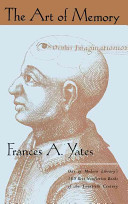 W
WThe Art of Memory is a 1966 non-fiction book by British historian Frances A. Yates. The book follows the history of mnemonic systems from the classical period of Simonides of Ceos in Ancient Greece to the Renaissance era of Giordano Bruno, ending with Gottfried Leibniz and the early emergence of the scientific method in the 17th century.
 W
WBobby Fischer Teaches Chess is a chess puzzle book written by Bobby Fischer and co-authored by Stuart Margulies and Don Mosenfelder, originally published in 1966. It is one of the best-selling chess books of all time, with over one million copies sold.
 W
WThe Bounds of Sense: An Essay on Kant’s Critique of Pure Reason is a 1966 book about Immanuel Kant's Critique of Pure Reason (1781) by the Oxford philosopher Peter Strawson, in which the author tries to separate what remains valuable in Kant's work from Kant's transcendental idealism, which he rejects. The work is widely admired, and has received praise from philosophers as one of the first thorough works on the Critique of Pure Reason in the analytic tradition, although Strawson's treatment of transcendental idealism has been criticized.
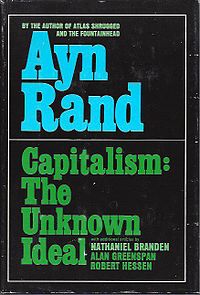 W
WCapitalism: The Unknown Ideal is a collection of essays, mostly by the philosopher Ayn Rand, with additional essays by her associates Nathaniel Branden, Alan Greenspan, and Robert Hessen. The authors focus on the moral nature of laissez-faire capitalism and private property. They have a very specific definition of capitalism, a system they regard as broader than simply property rights or free enterprise. It was originally published in 1966.
 W
WThe term Cartesian linguistics was coined with the publication of Cartesian Linguistics: A Chapter in the History of Rationalist Thought (1966), a book on linguistics by Noam Chomsky. The word "Cartesian" is the adjective pertaining to René Descartes, a prominent 17th-century philosopher. However, rather than confine himself to the works of Descartes, Chomsky surveys other authors interested in rationalist thought. In particular, Chomsky discusses the Port-Royal Grammar (1660), a book which foreshadows some of his own ideas concerning universal grammar.
 W
WCriticism and Truth is a 1966 work by Roland Barthes, first translated into English in 1987.
 W
WThe Diary of Anaïs Nin is the published version of Anaïs Nin's own private manuscript diary, which she began at age 11 in 1914 during a trip from Europe to New York with her mother and two brothers. Nin would later say she had begun the diary as a letter to her father, Cuban composer Joaquín Nin, who had abandoned the family a few years earlier.
 W
WAn Encyclopaedia of New Zealand was an official encyclopaedia about New Zealand, published in three volumes by the Government of New Zealand in 1966. Edited by Dr. Alexander Hare McLintock, the parliamentary historian, and assisted by two others, the encyclopaedia included over 1,800 articles and 900 biographies, written by 359 contributing authors.
 W
WRobert Cyril Stebbins was an American herpetologist and illustrator known for his field guides and popular books as well as his studies of reptiles and amphibians. His Field Guide to Western Reptiles and Amphibians, first published in 1966, is still considered the definitive reference of its kind, owing to both the quality of the illustrations and the comprehensiveness of the text. A professor of zoology at the University of California, Berkeley, for over 30 years, he was the first curator of herpetology at the Museum of Vertebrate Zoology, a 1949 Guggenheim fellow, and author of over 70 scientific articles. His discovery of the ring species phenomenon in Ensatina salamanders is now a textbook example of speciation, and he performed extensive research on the parietal eye of reptiles. He produced nature films, supported science education in primary grades, and organized conservation efforts that aided in the passing of the 1994 California Desert Protection Act. After retirement he continued to paint, collect field notes, and write books. Stebbins is commemorated in the scientific names of three species: Batrachoseps stebbinsi, the Tehachapi slender salamander; Anniella stebbinsi, a legless lizard; and Ambystoma tigrinum stebbinsi, the endangered Sonora tiger salamander.
 W
WThe Fortified House in Scotland is a five-volume book by the Scottish author Nigel Tranter.
 W
WThe General Encyclopedia of the Yugoslav Lexicographical Institute is a general encyclopedia published in eight volumes by the Yugoslav Lexicographical Institute in Zagreb between 1977 and 1982. It was the third edition of the encyclopedia, with the first two editions being published under the name Enciklopedija leksikografskog zavoda. The first edition in seven volumes was published between 1955 and 1964, and the second edition in six volumes was published between 1966 and 1969.
 W
WGeometric Exercises in Paper Folding is a book on the mathematics of paper folding. It was written by Indian mathematician T. Sundara Row, first published in India in 1893, and later republished in many other editions. Its topics include paper constructions for regular polygons, symmetry, and algebraic curves. According to historian of mathematics Michael Friedman, it became "one of the main engines of the popularization of folding as a mathematical activity".
 W
WThe Glory of Their Times: The Story of the Early Days of Baseball Told by the Men Who Played It is a 1966 book, edited by Lawrence Ritter, telling the stories of early 20th century baseball. It is widely acclaimed as one of the great books written about baseball.
 W
WGoff and Jones on the Law of Unjust Enrichment is the leading authoritative English law textbook on restitution and unjust enrichment (ISBN 978-1847-039101). First written by Robert Goff and Gareth Jones, it is presently in its ninth edition. It is published by Sweet & Maxwell and forms part of the Common Law Library.
 W
W"Ancient astronauts" refers to the pseudoscientific idea that intelligent extraterrestrial beings visited Earth and made contact with humans in antiquity and prehistoric times. Proponents suggest that this contact influenced the development of modern cultures, technologies, religions, and human biology. A common position is that deities from most, if not all, religions are extraterrestrial in origin, and that advanced technologies brought to Earth by ancient astronauts were interpreted as evidence of divine status by early humans.
 W
WIssues in Science and Religion is a book by Ian Barbour. A biography provided by the John Templeton Foundation and published by PBS online states this book "has been credited with literally creating the contemporary field of science and religion."
 W
WThe Jews of Silence: A Personal Report on Soviet Jewry is a 1966 non-fiction book by Elie Wiesel. The book is based on his travels to the Soviet Union during the 1965 High Holidays to report on the condition of Soviet Jewry. The work "called attention to Jews who were being persecuted for their religion and yet barred from emigrating."
 W
WJhatka Parkash ,also called Jhatka Parkash Granth, is a book written by Giani Niranjan Singh Saral, a leading preacher of the SGPC, concerning historical, philosophical, etymological and theological aspects of Jhatka and Meat eating in Sikh Religion.
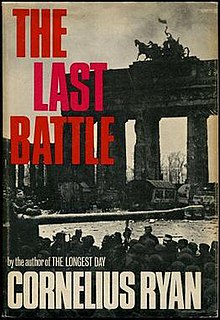 W
WThe Last Battle is a 1966 book by Cornelius Ryan about the events leading up to the Battle of Berlin in World War II.
 W
WLetter to His Father is the name usually given to the letter Franz Kafka wrote to his father Hermann in November 1919, indicting him for his emotionally abusive and hypocritical behavior towards him.
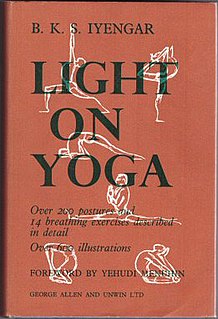 W
WLight on Yoga: Yoga Dipika is a 1966 book on the Iyengar Yoga style of modern yoga as exercise by B. K. S. Iyengar, first published in English. It describes more than 200 yoga postures or asanas, and is illustrated with some 600 monochrome photographs of Iyengar demonstrating these.
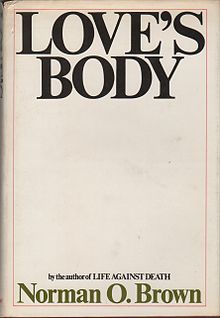 W
WLove's Body is a 1966 book about philosophy by the American classicist Norman O. Brown. The work develops themes explored by Brown in his previous book, Life Against Death (1959). The book was first published in the United States by Random House.
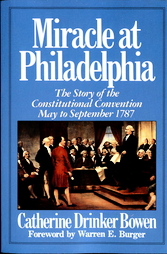 W
WMiracle At Philadelphia: The Story of the Constitutional Convention is a work of historical non-fiction, written by Catherine Drinker Bowen and originally published in 1966. Bowen recounts the Philadelphia Convention, a meeting in 1787 that created the United States Constitution. Bowen draws much of her information from notes and journals of the Framers, especially James Madison. It contains vivid description of many founders including George Washington, Benjamin Franklin, James Madison, Alexander Hamilton, George Mason, and Gouverneur Morris, important compromises such as the Great Compromise, and controversial issues such as slavery.
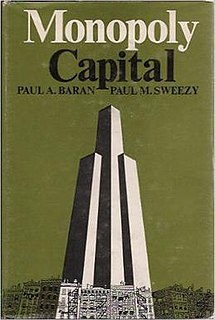 W
WMonopoly Capital: An Essay on the American Economic and Social Order is a 1966 book by the Marxian economists Paul Sweezy and Paul A. Baran. It was published by Monthly Review Press. It made a major contribution to Marxian theory by shifting attention from the assumption of a competitive economy to the monopolistic economy associated with the giant corporations that dominate the modern accumulation process. Their work played a leading role in the intellectual development of the New Left in the 1960s and 1970s. As a review in the American Economic Review stated, it represented "the first serious attempt to extend Marx’s model of competitive capitalism to the new conditions of monopoly capitalism." It attracted renewed attention following the Great Recession.
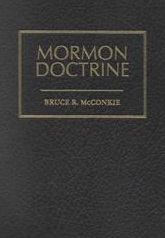 W
WMormon Doctrine is an encyclopedic work written in 1958 by Bruce R. McConkie, a general authority of The Church of Jesus Christ of Latter-day Saints. It was intended primarily for a Latter-day Saint audience and has been used as a reference book by church members because of its comprehensive nature, and was a highly influential all-time bestseller in the LDS community. It has never been an official publication of the church, and it has been both heavily criticized by some church leaders and members and well regarded by others. After the book's first edition was removed from publication at the instruction of the church's First Presidency and Quorum of the Twelve, corrections were made in subsequent editions. The book went through three editions but has been out of print since 2010.
 W
WA Mortal Flower is an autobiography by Han Suyin. It covers the years 1928 to 1938: her growing up in China and her journey to Belgium and her mother's family. Also her marriage to a rising officer in the Kuomintang and the retreat to Chungking in the face of the Japanese invasion of China.
 W
WNegative Dialectics is a 1966 book by the philosopher Theodor W. Adorno.
 W
WThe Night Battles: Witchcraft and Agrarian Cults in the Sixteenth and Seventeenth Centuries is a historical study of the benandanti folk custom of 16th and 17th century Friuli, Northeastern Italy. It was written by the Italian historian Carlo Ginzburg, then of the University of Bologna, and first published by the company Giulio Einaudi in 1966 under the Italian title of I Benandanti: Stregoneria e culti agrari tra Cinquecento e Seicento. It was later translated into English by John and Anne Tedeschi and published by Routledge and Kegan Paul in 1983 with a new foreword written by the historian Eric Hobsbawm.
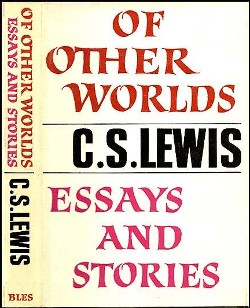 W
WOf Other Worlds is a 1966 anthology of literary criticism by C. S. Lewis and published posthumously by the executors of his estate. It was edited by Lewis' secretary and eventual literary executor Walter Hooper. The first part of the anthology consists of several essays that cover Lewis' ideas about the creation of science fiction or fantasy literature. Unreal Estates is the transcript of a recorded conversation between Lewis and the authors Brian Aldiss and Kingsley Amis that took place in Lewis' rooms in Magdalene College "a short while before illness forced him to retire." The second part of the book is made up of three of Lewis' science fiction stories and the beginnings of After Ten Years, an unfinished novel set during the aftermath of the Trojan War.
 W
WOn Aggression is a 1963 book by the ethologist Konrad Lorenz; it was translated into English in 1966. As he writes in the prologue, "the subject of this book is aggression, that is to say the fighting instinct in beast and man which is directed against members of the same species."
 W
WThe Order of Things: An Archaeology of the Human Sciences by Michel Foucault, proposes that every historical period has underlying epistemic assumptions, ways of thinking, which determined what is truth and what is acceptable discourse about a subject, by delineating the origins of biology, economics, and linguistics. The introduction to the origins of the human sciences begins with detailed, forensic analyses and discussion of the complex networks of sightlines, hidden-ness, and representation that exist in the group painting Las Meninas by Diego Velázquez. Foucault's application of the analyses shows the structural parallels in the similar developments in perception that occurred in researchers’ ways of seeing the subject in the human sciences.
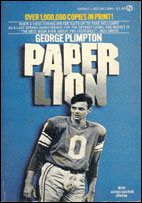 W
WPaper Lion is a 1966 non-fiction book by American author George Plimpton.
 W
WPhilosophy of Natural Science is a 1966 book about the philosophy of science by the philosopher Carl Gustav Hempel.
 W
WThe Pocket Guide to British Birds is a guide written by British naturalist and expert on wild flowers Richard Sidney Richmond Fitter, and illustrated by Richard Richardson, which was first published by Collins in 1952. Reprinted in 1953 and 1954, a second more revised 287-page editions was published by Collins in 1966, and in 1968.
 W
WThe Proud Tower: A Portrait of the World Before the War, 1890-1914 is a 1966 book by Barbara Tuchman, consisting of a collection of essays she had published in various periodicals during the mid-1960s. It followed the publication of the highly successful The Guns of August. Each chapter deals with a different country, theme, and time. Two chapters are about British governments in 1895 and 1910; one chapter is dedicated to the Dreyfus Affair in France; and another is nominally about the Wilhelmine politics of late 19th-century Germany, but is really about German music and culture in that period. Other chapters cover the United States, the Hague Conventions of 1899 and 1907, the anarchist movement of the late 19th and early 20th centuries, and the activities of the Socialist International and trade unions.
 W
WPurity and Danger: An Analysis of Concepts of Pollution and Taboo is a 1966 book by the anthropologist and cultural theorist Mary Douglas. It is her best known work. In 1991 the Times Literary Supplement listed it as one of the hundred most influential non-fiction books published since 1945. It has gone through numerous reprints and re-editions. In 2003 a further edition was brought out as volume 2 in Mary Douglas: Collected Works (ISBN 0415291054).
 W
WQuebec, The Revolutionary Age 1760–1791 is a book (ISBN 0-7710-6658-9) by Canadian historian Dr. Hilda Neatby, published in 1966 in both the French and English languages as part of The Canadian Centenary Series.
 W
WThe Social Construction of Reality: A Treatise in the Sociology of Knowledge is a 1966 book about the sociology of knowledge by the sociologists Peter L. Berger and Thomas Luckmann.
 W
WSpirits, Stars, and Spells: The Profits and Perils of Magic is a 1966 history book by L. Sprague de Camp and Catherine Crook de Camp, published by Canaveral Press. The book sold slowly, and the remaining stock was taken over by Owlswick Press and sold under its own name with new dust jackets in 1980. It has been translated into Polish.
 W
WThe Territorial Imperative: A Personal Inquiry Into the Animal Origins of Property and Nations is a 1966 nonfiction book by American writer Robert Ardrey. It describes the evolutionarily determined instinct among humans toward territoriality and the implications of this territoriality in human meta-phenomena such as property ownership and nation building. The Territorial Imperative was an immediate success and remains a widely influential work of popular science. It extended Ardrey's groundbreaking anthropological work, contributed to the development of the science of ethology, and encouraged an increasing public interest in human origins.
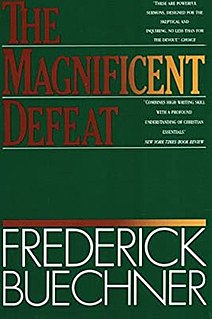 W
WThe Magnificent Defeat is a collection of meditations on Christianity and faith by Frederick Buechner. It was first conceived as a series of sermons, delivered at the Phillips Exeter Academy throughout 1959. It was subsequently published by Seabury Press, NY, in 1966. The Magnificent Defeat is Buechner’s first non-fiction publication.
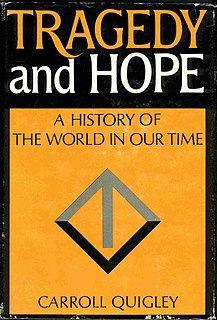 W
WTragedy and Hope: A History of the World in Our Time is a work of history written by former Georgetown University professor and historian Carroll Quigley. The book covers the period of roughly 1880 to 1963 and is multidisciplinary in nature though perhaps focusing on the economic problems brought about by the First World War and the impact these had on subsequent events. While global in scope, the book focuses on Western civilization. It is written from a Eurocentric perspective.
 W
WTwenty Cases Suggestive of Reincarnation is a 1966 book written by psychiatrist Ian Stevenson on claims of spontaneous recall of information about previous lives by young children. The book focuses on twenty cases investigated by the author. It has been translated into seven foreign languages.
 W
WThe Tyranny of Distance: How Distance Shaped Australia's History is a history book by Geoffrey Blainey.
 W
WUnderstanding Physics (1966) is a popular science book written by Isaac Asimov (1920-1992). It is considered to be a reader-friendly informational guide regarding the fields of physics, written for lay people. It is one of several science guides by Asimov.
 W
WWarrant for Genocide: The Myth of the Jewish World-Conspiracy and the Protocols of the Elders of Zion, by Norman Cohn, is a critical work about The Protocols of the Elders of Zion.